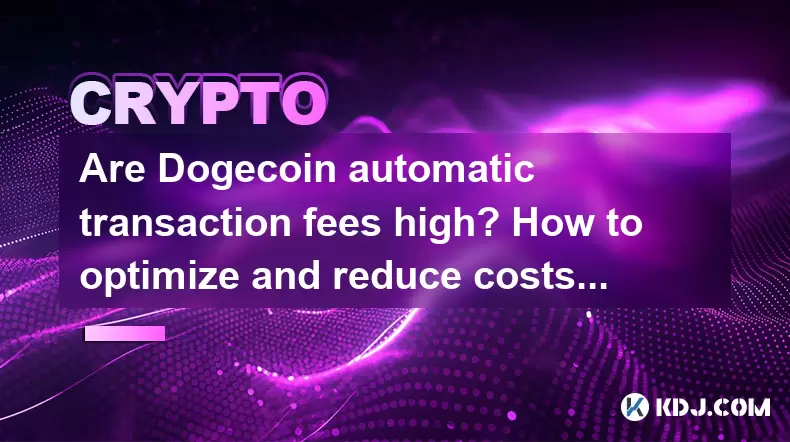-
 Bitcoin
Bitcoin $119100
-2.16% -
 Ethereum
Ethereum $4300
-0.31% -
 XRP
XRP $3.171
-2.99% -
 Tether USDt
Tether USDt $1.000
-0.01% -
 BNB
BNB $814.1
-1.33% -
 Solana
Solana $176.5
-4.67% -
 USDC
USDC $0.0000
0.00% -
 Dogecoin
Dogecoin $0.2267
-5.83% -
 TRON
TRON $0.3465
2.15% -
 Cardano
Cardano $0.7870
-4.98% -
 Chainlink
Chainlink $21.66
-2.27% -
 Hyperliquid
Hyperliquid $43.89
-4.62% -
 Stellar
Stellar $0.4414
-3.35% -
 Sui
Sui $3.707
-6.73% -
 Bitcoin Cash
Bitcoin Cash $599.1
3.73% -
 Hedera
Hedera $0.2504
-6.96% -
 Ethena USDe
Ethena USDe $1.001
-0.01% -
 Avalanche
Avalanche $23.21
-4.99% -
 Litecoin
Litecoin $121.1
-3.55% -
 Toncoin
Toncoin $3.415
0.45% -
 UNUS SED LEO
UNUS SED LEO $9.002
-1.24% -
 Shiba Inu
Shiba Inu $0.00001314
-5.43% -
 Uniswap
Uniswap $11.45
1.63% -
 Polkadot
Polkadot $3.926
-5.37% -
 Cronos
Cronos $0.1694
1.63% -
 Ethena
Ethena $0.8117
-2.35% -
 Dai
Dai $1.000
0.00% -
 Bitget Token
Bitget Token $4.422
-1.43% -
 Monero
Monero $264.2
-0.83% -
 Pepe
Pepe $0.00001137
-8.29%
Are Bitcoincoin automatic transaction fees high? How to optimize and reduce costs?
Dogecoin transaction fees are generally low but can vary; users can optimize costs by using fee estimators, batching transactions, and choosing efficient wallets.
May 20, 2025 at 04:56 pm

Are Dogecoin automatic transaction fees high? How to optimize and reduce costs?
When it comes to Dogecoin, understanding the automatic transaction fees is crucial for users looking to optimize their transactions and reduce costs. The fees associated with Dogecoin transactions can vary based on several factors, including network congestion, the size of the transaction, and the priority level set by the sender. In this article, we will delve into the specifics of Dogecoin transaction fees, analyze whether they are considered high, and provide detailed strategies on how to optimize and reduce these costs.
Understanding Dogecoin Transaction Fees
Dogecoin transaction fees are the amounts paid to miners for processing and validating transactions on the Dogecoin blockchain. These fees are typically measured in DOGE and are calculated based on the size of the transaction in bytes and the fee rate set by the sender. The fee rate is usually expressed in DOGE per kilobyte (KB).
The standard fee rate for Dogecoin transactions is often set at 1 DOGE per KB. However, this can fluctuate based on network conditions. During periods of high network congestion, users may need to pay higher fees to ensure their transactions are processed quickly. Conversely, during times of low network activity, lower fees might be sufficient.
Are Dogecoin Transaction Fees High?
Whether Dogecoin transaction fees are considered high depends on various factors. Compared to other cryptocurrencies like Bitcoin, Dogecoin fees are generally lower. For instance, while Bitcoin transaction fees can sometimes exceed $10 during peak times, Dogecoin fees rarely go above a few cents in equivalent value.
However, the perception of "high" is subjective and can vary based on the user's expectations and the frequency of their transactions. For casual users who send small amounts occasionally, Dogecoin fees might seem negligible. On the other hand, for frequent traders or businesses processing many transactions, even small fees can accumulate and become significant.
Factors Affecting Dogecoin Transaction Fees
Several factors influence the fees associated with Dogecoin transactions:
- Network Congestion: When the Dogecoin network is busy, miners prioritize transactions with higher fees, leading to increased costs for users who want their transactions processed quickly.
- Transaction Size: Larger transactions, which typically involve more inputs and outputs, require more space on the blockchain and thus incur higher fees.
- Fee Rate: The fee rate set by the sender directly affects the cost of the transaction. A higher fee rate can expedite processing, while a lower rate might lead to delays.
Strategies to Optimize and Reduce Dogecoin Transaction Fees
To optimize and reduce Dogecoin transaction fees, users can employ several strategies:
Use Optimal Fee Rates: Finding the right balance between speed and cost is essential. Tools like Dogecoin fee estimators can help users determine the appropriate fee rate based on current network conditions.
Batch Transactions: Instead of sending multiple small transactions, users can combine them into a single larger transaction. This approach reduces the overall fee by minimizing the number of transactions processed.
Wait for Lower Congestion: If there is no urgency, users can wait for periods of lower network congestion to send their transactions at a lower fee rate.
Use Lightweight Wallets: Some Dogecoin wallets are designed to be more efficient and can create smaller transaction sizes, which in turn reduces fees.
Detailed Steps to Optimize Dogecoin Transaction Fees
Here are detailed steps users can follow to optimize their Dogecoin transaction fees:
Estimate the Current Fee Rate:
- Visit a Dogecoin fee estimator website or use a feature within your wallet that provides real-time fee estimates.
- Note the suggested fee rate for different levels of urgency (e.g., low, medium, high).
Set the Appropriate Fee Rate:
- In your Dogecoin wallet, navigate to the transaction settings or advanced options.
- Adjust the fee rate to the estimated value that aligns with your desired transaction speed.
Batch Transactions:
- If you need to send multiple payments, consolidate them into a single transaction.
- In your wallet, select all recipients and enter their respective amounts before sending.
Monitor Network Congestion:
- Use blockchain explorers or network monitoring tools to check the current state of the Dogecoin network.
- If congestion is high, consider waiting until it decreases before sending your transaction.
Choose the Right Wallet:
- Research and select a wallet that is known for its efficiency in creating smaller transaction sizes.
- Install and set up the wallet, ensuring it supports the features you need for optimizing fees.
Real-World Examples of Optimizing Dogecoin Transaction Fees
To illustrate how these strategies can be applied, consider the following scenarios:
Scenario 1: Casual User:
A casual user wants to send 100 DOGE to a friend. They check the current fee rate and find that a low fee of 0.5 DOGE per KB is sufficient due to low network congestion. They set this fee rate in their wallet and complete the transaction, paying a minimal fee.Scenario 2: Business Owner:
A business owner needs to send payments to multiple vendors. Instead of sending individual transactions, they batch the payments into a single transaction. By doing so, they reduce the total fee from what would have been 10 separate transactions to just one, significantly lowering their costs.Scenario 3: Trader:
A trader wants to move a large amount of Dogecoin quickly. They check the network congestion and find it is high. To ensure their transaction is processed promptly, they set a higher fee rate of 2 DOGE per KB, which prioritizes their transaction and ensures it is confirmed in the next block.
Frequently Asked Questions
Q: Can Dogecoin transaction fees be completely eliminated?
A: No, Dogecoin transaction fees cannot be completely eliminated as they are necessary to incentivize miners to process and validate transactions on the blockchain. However, users can minimize these fees by optimizing their transactions.
Q: Do all Dogecoin wallets have the same fee structure?
A: No, different Dogecoin wallets may have different default fee settings and options for customizing fees. It's important for users to choose a wallet that offers flexibility in setting transaction fees to optimize costs.
Q: How often do Dogecoin transaction fees change?
A: Dogecoin transaction fees can change frequently based on network conditions. Users should check fee estimators or their wallet's fee settings regularly to stay updated on the current rates.
Q: Is it possible to predict Dogecoin transaction fees in advance?
A: While it's difficult to predict exact fees due to the dynamic nature of the network, users can use historical data and current network conditions to make educated estimates about future fees.
Disclaimer:info@kdj.com
The information provided is not trading advice. kdj.com does not assume any responsibility for any investments made based on the information provided in this article. Cryptocurrencies are highly volatile and it is highly recommended that you invest with caution after thorough research!
If you believe that the content used on this website infringes your copyright, please contact us immediately (info@kdj.com) and we will delete it promptly.
- Dogecoin, Presale, Surge: Riding the Meme Coin Wave
- 2025-08-12 11:10:12
- Dogecoin, Tron, and the ROI Reality Check: What's a Crypto Investor to Do?
- 2025-08-12 11:15:12
- Ethereum Layer-2 Scaling Competition Heats Up as ETH Breaks $4K
- 2025-08-12 10:30:12
- China Regulation, Stablecoins, and BNB Presale: Navigating the Crypto Landscape
- 2025-08-12 11:30:12
- Meme Coins, Investment, and Token Burns: What's Hot in 2025?
- 2025-08-12 10:30:12
- BlockDAG, Chainlink, Hedera: The Cryptos Enterprises are Eyeing
- 2025-08-12 09:30:12
Related knowledge

How to purchase Aragon (ANT)?
Aug 09,2025 at 11:56pm
Understanding Aragon (ANT) and Its PurposeAragon (ANT) is a decentralized governance token that powers the Aragon Network, a platform built on the Eth...

Where to trade Band Protocol (BAND)?
Aug 10,2025 at 11:36pm
Understanding the Role of Private Keys in Cryptocurrency WalletsIn the world of cryptocurrency, a private key is one of the most critical components o...

What is the most secure way to buy Ocean Protocol (OCEAN)?
Aug 10,2025 at 01:01pm
Understanding Ocean Protocol (OCEAN) and Its EcosystemOcean Protocol (OCEAN) is a decentralized data exchange platform built on blockchain technology,...

Where can I buy UMA (UMA)?
Aug 07,2025 at 06:42pm
Understanding UMA and Its Role in Decentralized FinanceUMA (Universal Market Access) is an Ethereum-based decentralized finance (DeFi) protocol design...

How to buy Storj (STORJ) tokens?
Aug 09,2025 at 07:28am
Understanding Storj (STORJ) and Its Role in Decentralized StorageStorj is a decentralized cloud storage platform that leverages blockchain technology ...

Where to find the best price for Audius (AUDIO)?
Aug 11,2025 at 04:01pm
Understanding the Basics of Ethereum StakingEthereum staking refers to the process of locking up ETH tokens to support the security and operations of ...

How to purchase Aragon (ANT)?
Aug 09,2025 at 11:56pm
Understanding Aragon (ANT) and Its PurposeAragon (ANT) is a decentralized governance token that powers the Aragon Network, a platform built on the Eth...

Where to trade Band Protocol (BAND)?
Aug 10,2025 at 11:36pm
Understanding the Role of Private Keys in Cryptocurrency WalletsIn the world of cryptocurrency, a private key is one of the most critical components o...

What is the most secure way to buy Ocean Protocol (OCEAN)?
Aug 10,2025 at 01:01pm
Understanding Ocean Protocol (OCEAN) and Its EcosystemOcean Protocol (OCEAN) is a decentralized data exchange platform built on blockchain technology,...

Where can I buy UMA (UMA)?
Aug 07,2025 at 06:42pm
Understanding UMA and Its Role in Decentralized FinanceUMA (Universal Market Access) is an Ethereum-based decentralized finance (DeFi) protocol design...

How to buy Storj (STORJ) tokens?
Aug 09,2025 at 07:28am
Understanding Storj (STORJ) and Its Role in Decentralized StorageStorj is a decentralized cloud storage platform that leverages blockchain technology ...

Where to find the best price for Audius (AUDIO)?
Aug 11,2025 at 04:01pm
Understanding the Basics of Ethereum StakingEthereum staking refers to the process of locking up ETH tokens to support the security and operations of ...
See all articles

























































































